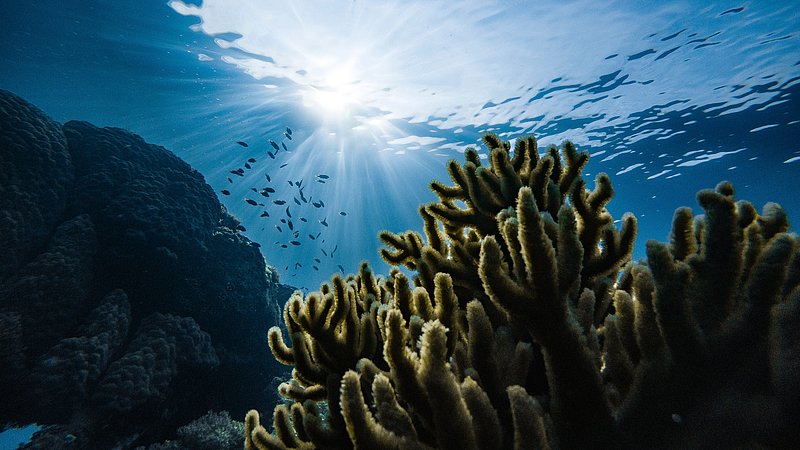Everyone knows it, the legendary Great Barrier Reef on the east coast of Australia. Colourful coral reefs shimmer under the turquoise water - truly a paradise. But the idyll is deceptive, less and less corals are red, yellow or purple, but white: one coral bleaching follows the other. Warm summers and destructive weather phenomena are not the only reason for coral death.
Researchers have found out that coral reefs all over the world are facing another human-induced stress: Plastic waste. Due to inadequate waste processing, 4.8 to 12.7 million tons of plastic enter the water every year in coastal regions alone. The researchers found that plastic waste increases the susceptibility of reef-forming corals to disease, which leads to outbreaks of disease. The probability of disease increased from 4 percent to 89 percent when corals came into contact with plastic, the international research team reported in the journal "Science". The study examined the influence of plastic waste on the risk of disease on 124,000 reef-forming corals from 159 reefs in the Asia-Pacific region. It is estimated that in the entire Asia-Pacific region some 11 billion plastic parts have already become entangled in coral reefs and this number is expected to increase by 40 percent by 2025.Plastic is poison for corals - and therefore also for us
Additional Threat to Underwater Paradise - Plastic Make Corals Sick
For a long time, coral bleaching was exclusively attributed to global warming. But research now shows that something else is destroying the colourful living creatures: it's plastic. How can this be?
Additional threat to underwater paradise - Plastic make corals sick
But what exactly makes corals sick?
Much more research is needed in the future, but it is assumed that there is a combination of several reasons. Pathogens can easily settle on plastic waste, which then also cause long reef diseases and diseases in the corals. These are also spread more quickly due to the longevity of plastics. In addition, plastic waste can cause physical injuries and abrasion to coral tissue, just as it does to humans. This would also facilitate the penetration of pathogens. Moreover, every injury is an additional burden, which means that the immune system is exhausted more quickly. According to the researchers, the plastic itself, which floats on the surface of the water, can also be a problem - it deprives the corals of sunlight.
The problem may seem far away from the perspective of many people who only know coral reefs from television. But in the end it affects us all: the loss of structurally available habitat for reef organisms reduces the productivity of fishing by a factor of three. And what are the effects on our psyche if our recreational areas are increasingly destroyed? When all that beauty is eventually gone?
Everything is interconnected and has effects that are not always obvious. For our corals, one thing is clear: reducing the amount of plastic in the oceans is essential to maintaining the health of the reefs. See also our other articles on the secondary effects of plastics.


